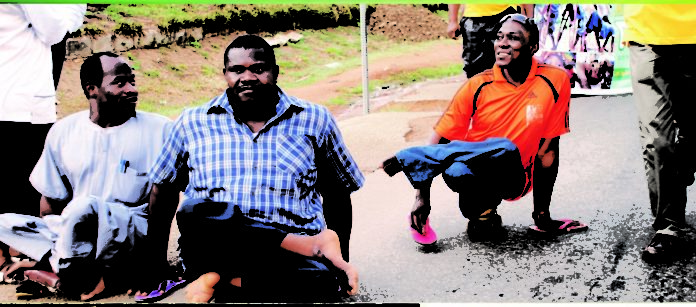
By Ndidichukwu Odoh
Nigeria has survived another three years without Wild Polio Virus infection on any child. The world again celebrated this victory against one of the World’s dreaded virus on the 21st of August 2019 when the World Health Organization (WHO) announced that there has been a 3 year sustained interruption of new infection from Polio. The WHO again has commenced the process of certification scheduled for June 2020.
As at 2012, Nigeria accounted for more than half of all polio cases worldwide, by 24 July 2016 Polio infection was interrupted for the first time in the History of Nigeria. This was possible because the then leadership of the National Primary Health Care Development Agency, (NPHCDA) rose to the occasion, renewed its commitment to totally interrupt, eradicate and sustain a polio free Nigeria.
The effort of the NPHCDA between 2012 and 2016 was strongly backed and supported by the Federal Government, Development Partners, renowned philanthropists- the likes of Bill Gates and Aliko Dangote, Civil Society Organizations, Traditional and Religious Leaders, the media, many passionate health workers, Polio Victims and Nigerians themselves. The Interruption was not long celebrated when the Government reported in August 11th 2016 that 2 children have been paralyzed by the disease in the northern state.

According to the WHO, Polio is a highly infectious disease caused by a virus. It invades the nervous system, and can cause total paralysis in a matter of hours. The virus is transmitted by person-to-person spread mainly through the faecal-oral route or, less frequently, by a common vehicle (for example, contaminated water or food) and multiplies in the intestine. Initial symptoms are fever, fatigue, headache, vomiting, stiffness of the neck and pain in the limbs. 1 in 200 infections leads to irreversible paralysis (usually in the legs). Among those paralysed, 5% to 10% die when their breathing muscles become immobilized.Polio mainly affects children under 5 years of age, with no cure but can only be prevented through a vaccine, given multiple times, which protects a child for life.
Fighting Polio in Nigeria:
Nigeria’s efforts and journey to freedom from Wild Polio Virus is written on the marble of history. It is recorded that 2003 witnessed a “boycott” of vaccination campaigns by some states in northern Nigeria following rumors that the vaccines could cause infertility- false allegation against the Western World to control the population growth, cause poliomyelitis and spread HIV. The boycott led to the spread of polio into twenty countries across Africa, the Middle East and Southeast Asia causing 80% of the world’s cases of paralytic poliomyelitis. This resistance to polio vaccination efforts in Northern Nigeria created a global health crisis that appeared political in origin but religious in operation. It further led to intense circulation of Wild poliovirus (WPV) in three countries (Afghanistan, Nigeria, and Pakistan).
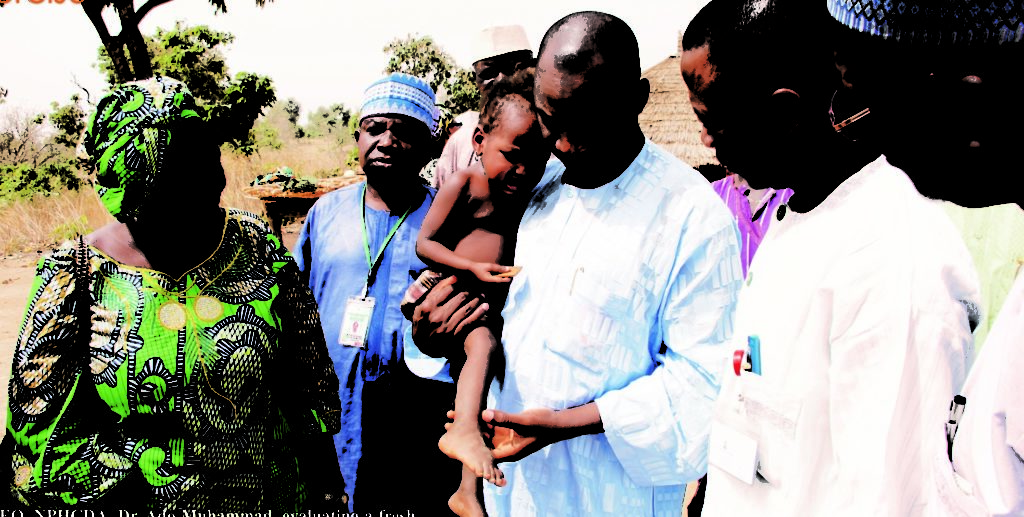
Epidemiological analysis contained in the final report of Nigeria’s 24th Expert Review Committee (ERC) on PolioEradication and Routine Immunization held in Abuja on 10th -11th September 2012 was that polio cases increased from 21 in 2010, 62 in 2011, and 84 in 2012. The 11 high risk states with persistent wild poliovirus transmission in Nigeria were Borno, Jigawa, Kano, Kastina, Kebbi, Sokoto, Yobe, Zamfara, Kaduna, Bauchi and Niger. 60% of cases were obtained from (Katsina (22), Kano (17) and Kaduna (11) states.
To optimize the president’s commitment to polio vaccination, in Oct 2011, the Goodluck Ebele Jonathan’s administration announced the establishment of presidential Task force with the Honorable Minister of State for Health, Dr Muhammad Ali Pate, the then Executive Director of the NPHCDA Dr Ado Muhammad as the secretary, with the support of the senior Health Minister Professor Onyebuchi Chukwu and Chairmen of Senate and House Committees of the National Assmbly, Ifeanyi Okowa and Tony Elumelu respectively, Political will to eradicate polio evidently increased.
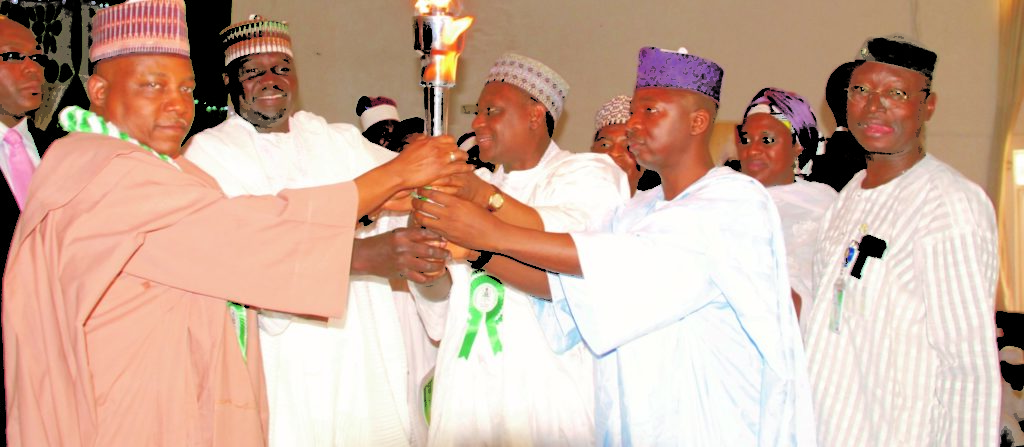
The Task force was charged to oversee the implementation and monitor the progress towards successful interruption of wild poliovirus transmission in Nigeria. In Nov-Dec 2011, the Presidential Task Team met to prepare its Terms of Reference (TOR), Operational Guidelines and Draft PEI Accountability Framework. Similarly, at the third quarter of 2011, state governors declared commitment to polio eradication. Then in Jan 2012, Chairman of Presidential PEI Task Force (Hon. Minister of State for Health) presided over National PEI stakeholders annual review and planning meeting during which 2012 priorities as well as the format and timelines for the finalization of 2012 PEI Emergency Plan were deliberated upon and adopted. Eventually, the Presidential Task Force on Polio Eradication was inaugurated by Mr President on 1st February, 2012 and it held its first meeting on the same day.
Following the declaration of polio as a Programmatic Emergency for Global Public Health by the Executive Board of WHO in 2012, Immunization activities in Nigeria intensified. Coordinated by the NPHCDA through the then Executive Director Dr Ado Muhammad, Polio became a topical issue. Efforts to delist Nigeria from the endemic countries led to increased and strategic programme implementation such as routine immunization (RIs), Supplementary Immunization Activities (SIAs), Mop-Ups and Acute flaccid paralysis (AFPs) surveillance. This was followed by other interventions like the de-worming drugs as well as vitamin A supplementation, sweets, sachets of milk and toys availed to children while mothers received soaps during the house-to-house polio campaigns. Introduction of these incentives greatly encouraged mothers to take their children for vaccination.
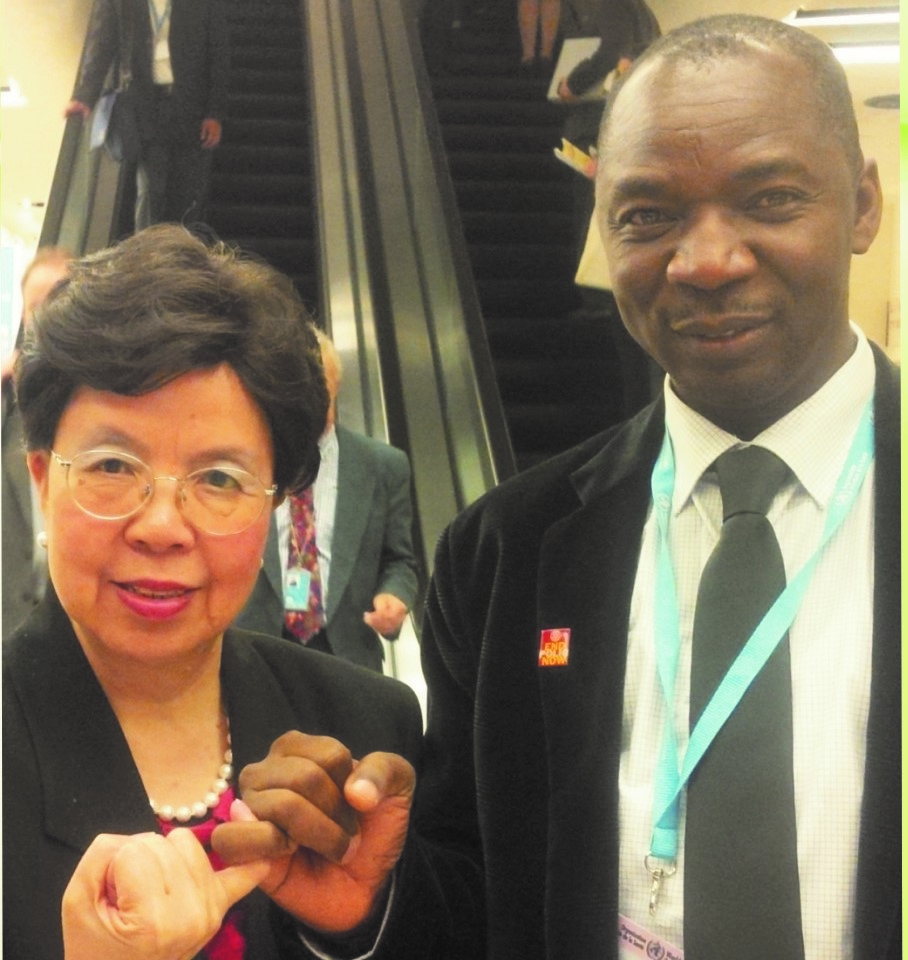
The NPHCDA as the task force secretariat increased advocacy and public sensitization on Polio from 2012, Jingles, regular media briefings, short drama on national televisions, sponsored adverts and collaboration by media owners also took place, this made polio a topical issue in the Nigerian media space. Health workers and vaccinators were more committed at the time, house-to-house vaccination increased despite the sad murder of vaccinators and security challenges in the North East. Development workers were at all communities in Nigeria during the Immunization Plus Days to mobilize and ensure no child was missed. Local Government Chairmen were more proactive, most of them were part of the taskforce who visited families to address cases of non-compliance and sat in all review meetings at the end of IPDs. Polio victims also conducted a mass protest to demand for action and prevent more spread of the virus and sensitize the public for behavioural change.
The support of the World Health Organization-WHO-and United Nations Children’s Fund-UNICEF-will not be forgotten, while the WHO provided additional boots on the ground with daily fair to vaccinators, the UNICEF was responsible for Vaccine purchase, logistics, social mobilization-reaching and recruiting community mobilizes and volunteers. UNICEF also trained the media and sponsored media field activities during this time.
The Directors of the NPHCDA, the likes of Dr Emmanuel Abanida, Dr. Emmanuel Odu, Dr Mohammad Abdullahi, late Dr. Nnenna Ihebuzor, and Dr Mustapha Mahmoud worked round the clock to ensure that the Nigerian Children were saved from Polio, for instance the then Chief Medical Officer and Zonal Coordinator North West Zone, Dr. Mustapha Mahmoud, from 2009 led the advocacy team to traditional and religious leaders, the success of this advocacy led to the reduction of non-compliance and rejection of vaccines in the Northern States. These efforts brought about the full participation of religious and traditional rulers in to the Expert Review Committee on Polio, and also the religious council chaired by the Sultan of Sokoto himself.Traditional and Religious rulers at various fora spoke about the benefits of vaccination to build trust of their subjects and encourage them to protect their children against the disease. These Honourable men championed the cause for a polio free Nigeria.
Freedom Era:
Between 2012 and 2016, the NPHCDA and development partners became technically responsive to Primary Health in Nigeria, while battling polio. The Technical Task Force under the leadership of Dr Pate and coordination by Ado led the national polio eradication initiative and oversaw the achievement of interruption of the Wild Polio Virus in Nigeria, with case reduction from 123 to zero in 2014. Interruption was also maintained up until 2016. In the same vein, the duo, Drs Pate and Ado also Initiated the Emergency Operation Center (EOC) for Polio Eradication Initiative with support from the Federal Government, Bill and Melinda Gates foundation, UN agencies and other partners, while Andrew Etsano was the Incident Manager. Till date the EOC has become a model of good practice in disease surveillance in Africa and also helped in coordinatingNigeria’s efforts in controlling the Ebola Outbreak.
With technical support from McKinsey Consultancy firm and partners, the NPHCDA also established a “dashboard” and “model Hub-system” for the distribution of Routine immunization which led to improved vaccine availability at the frontlines and also ensure zero stock-out of routine vaccines nation-wide. Beyond polio, in this Era, there was a scale of new vaccines introduction supported by GAVI particularly successful Introduction of Men A, Pentavalent IPV, PCV and Initiated processes for the introduction of Rota Virus and HPV vaccines.
To Improve Immunization financing generally, and scale-up domestic resources from states in Nigeria, the Ado led NPHCDA articulated an innovative basket financing initiative for Routine Immunization in selected states, got philanthropic support from the BMGF and Aliko Dangote Foundation, which led to the establishment of the on-going tripartite arrangement between high risks northern states, BMGF and Aliko Dangote. Buy-in by states lead to the establishment of State Primary Health Care Development Agencies and 6 NPHCDA zonal offices in Nigeria. It also swiftly positioned the NPHCDA to access the Basic Health Care Provision Fund of the National Health Act transparently without hitches. At the time, the NPHCDA saw the need to totally decentralize PHC services, this brought about the creation of Primary Health Care Under One Roof, ((PHCUOR).
Too many to mention, there was also an innovative strategy of “Hit and Run” to deliver immunization services to children in security challenged areas of North-east Nigeria. Critical at the time when Nigeria got to the peak of Insurgency, not deterred by the challenges, Health Workers and vaccinators were ready and willing to reach Children in crisis area, not minding the risks and murder of vaccinators in the North East.
By 2014, Nigeria interrupted Polio and was able to sustain this feat until August 11th when 2 children in northern Borno State were reported to have been paralysed. The sad moment helped Nigeria to reinstate commitment to financing. President Muhammadu Buhari, got to understand the technicality involved in Routine Immunization financing, he released all pending routine immunization funding, got support from the BMGF, the UN agencies, and after then appointed Dr Faisal Shuaib.
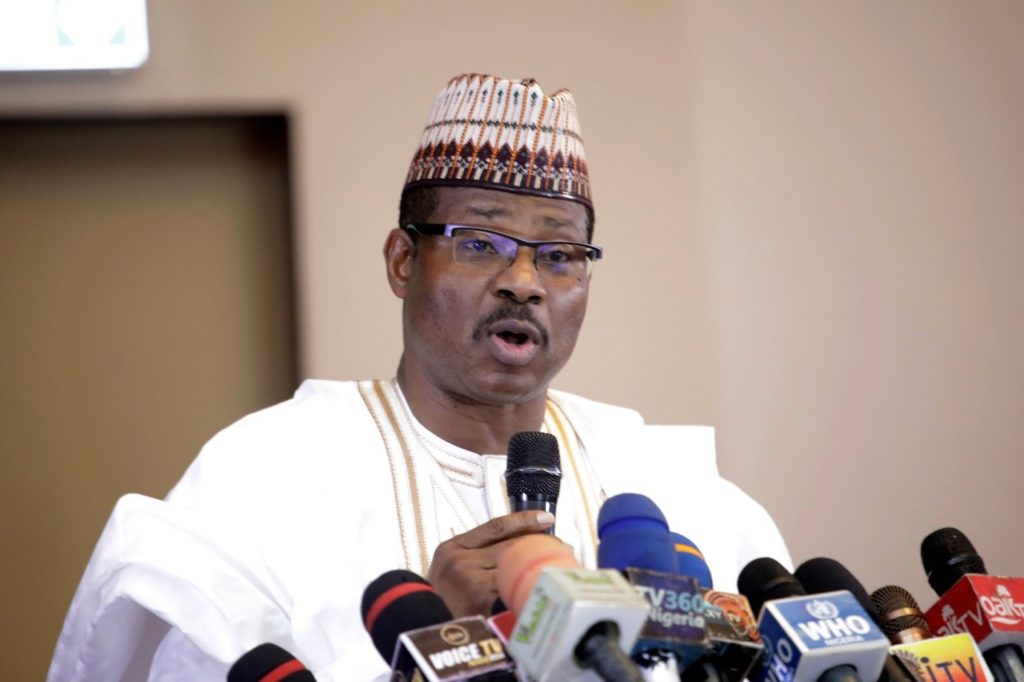
The current Executive Director of NPHCDA, inherited an improved and effective NPHCDA but with a strong mandate to conduct the last face of Polio eradication in Nigeria’s crisis area-Borno and most parts of the North-East. He started by establishing NERICC, SERICC and LERICC and strengthening existing systems. Shuaib has been consistent towards maintaining the Polio free status of Nigeria. Shuaib’s administration built on the improvement and successfully led Nigeria to another 3 years without Polio.
At the moment, what is required is and enhanced surveillance system. Nigeria must ensure functional Routine Immunization through efficient Primary Health Care system as done under the PHC under one roof. Political is also needed to increase domestic funding for Routine Immunization and reduce so much dependence on aid.
The hope is that by June 2020, Nigeria will be officially announced and certified Polio free by the WHO, this means freedom for Nigerian children unborn, Freedom for Africa and freedom for the World. History will remember all the men and women who walked this long distance, dead and alive to bring freedom to Nigeria.























